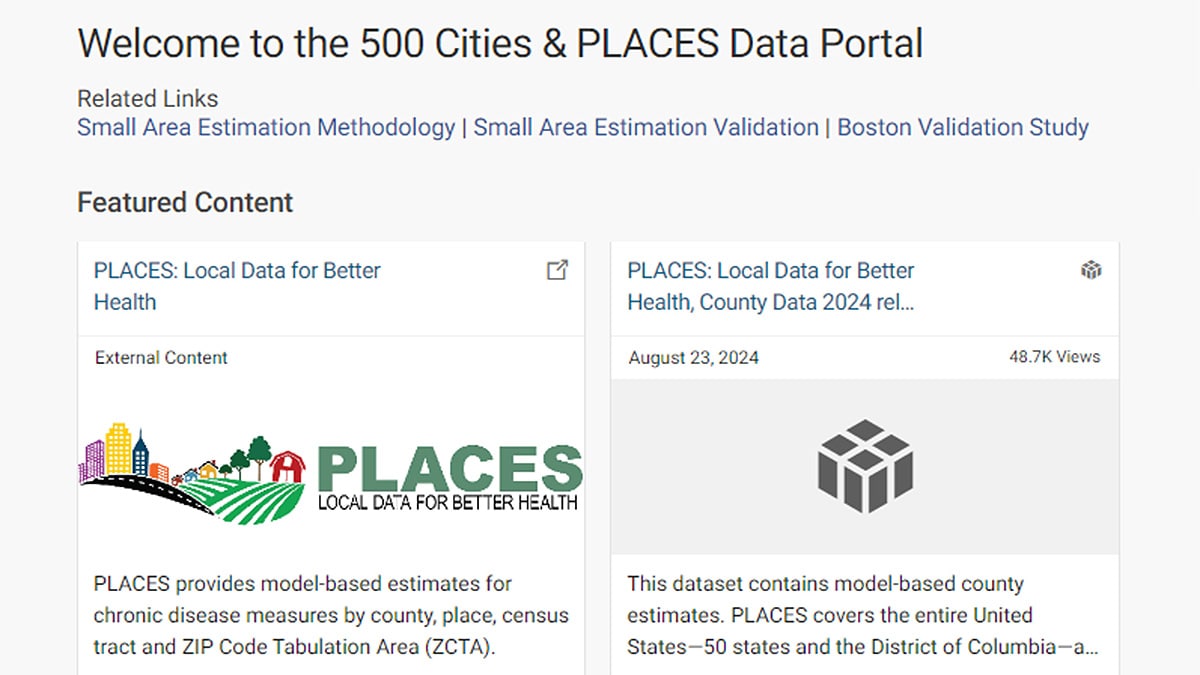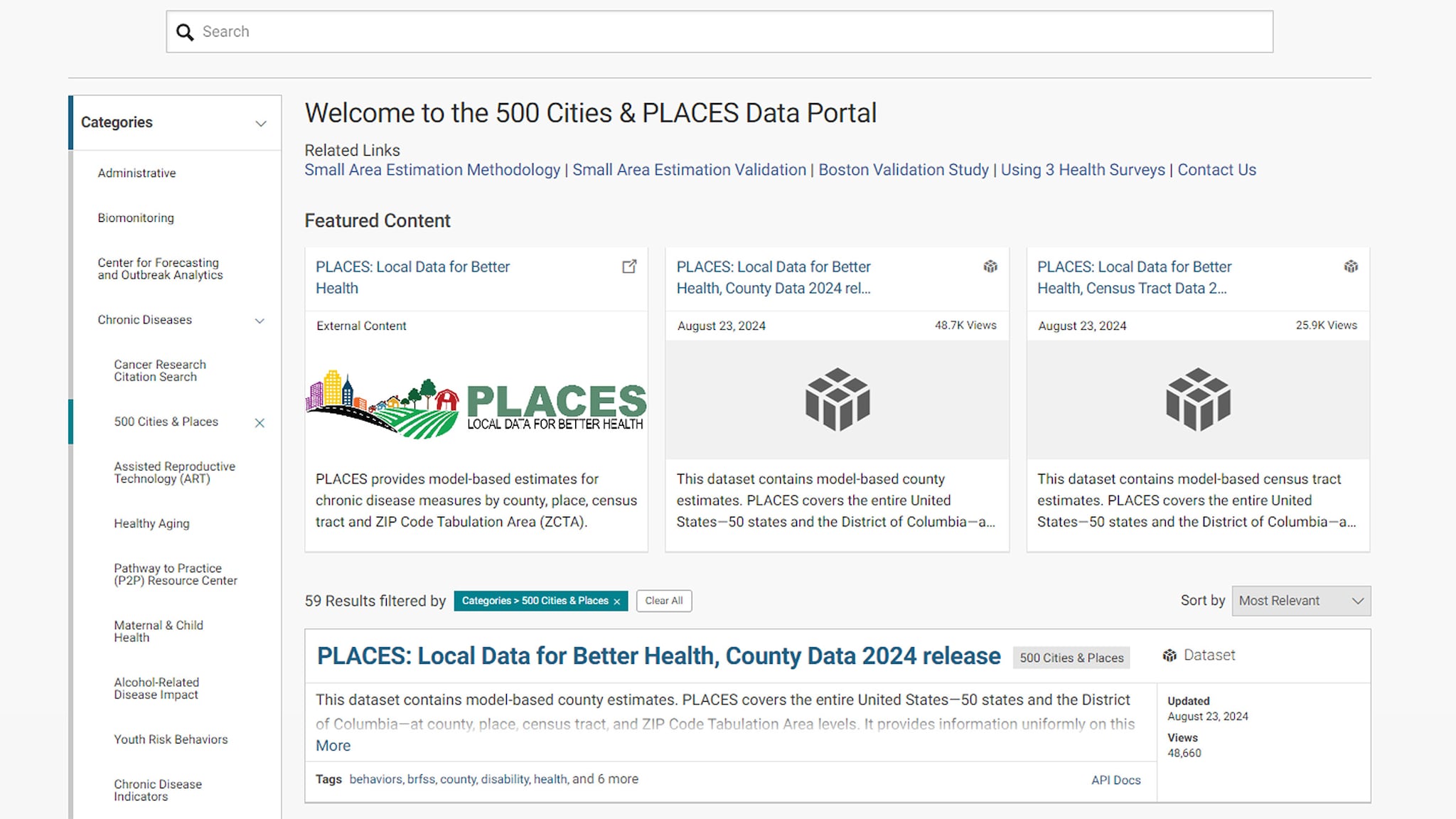What to know
The PLACES Data Portal is an online data repository designed for individuals to access and download PLACES datasets. This includes both the current and prior releases of PLACES data.

Overview
Summary
The PLACES Data Portal includes PLACES and 500 Cities (2016-2019) data for all current and prior releases.
- The data include estimates on health outcomes, preventive service use, health risk behaviors, disabilities, health status, and health-related social needs from the Behavioral Risk Factor and Surveillance System (BRFSS), as well as social determinants of health data from American Community Survey.
- Each PLACES data release includes 8 datasets on 4 geographic levels (county, place, census tract, and ZIP Code tabulation area) and in 2 formats (opendata and GIS friendly).
The data are intended to help local health departments, policymakers, researchers, and members of the public understand the distribution of health-related outcomes at a granular level.
- By doing so, it informs targeted public health interventions and resource allocation to improve community health. The portal allows users to select, view, query, download datasets, or access through API for further analysis.

Intended Users
- Public Health Officials and Policymakers: To help allocate resources, plan interventions, and set priorities based on the specific health needs of communities.
- Community and Rural Health Agencies: To identify and address the unique health, social, and resource needs of rural communities.
- National non-governmental and community-based organizations: To better understand prevention practices and health behaviors of the communities they serve for development of targeted interventions.
- Emergency Preparedness and Response Officials: To understand and anticipate the particular needs of communities affected by an emergency or disaster.
- Hospitals, Healthcare Providers, Organizations, and Systems: To better understand the health profiles of the communities they serve.
- Health Insurance Plans: To better understand the health risks, conditions, and prevention practices of the communities they serve.
- Researchers and Academics: To access detailed local health data for studies and analyses.
- General Public: To allow individuals to learn more about the health statistics of their own communities or others.
By providing this level of detail in its data offerings, PLACES helps decision makers make informed actions towards improving public health at the local level.
How-to guides
Use this guide to explore and learn how to use the PLACES data portal.

